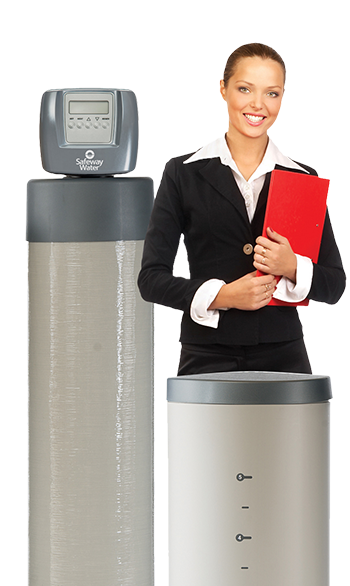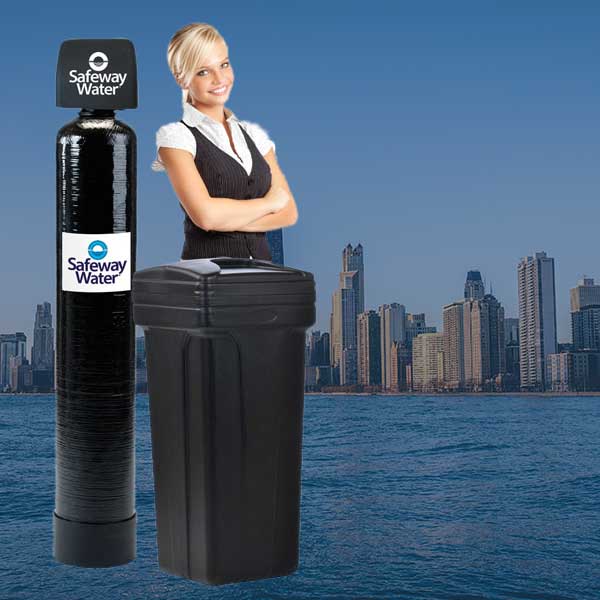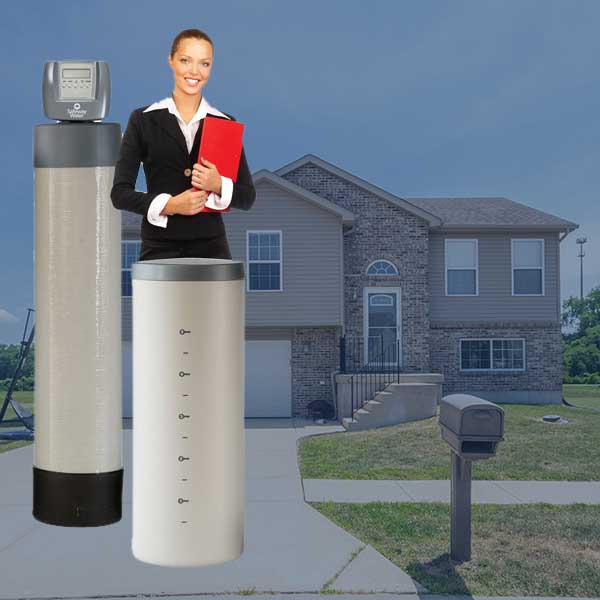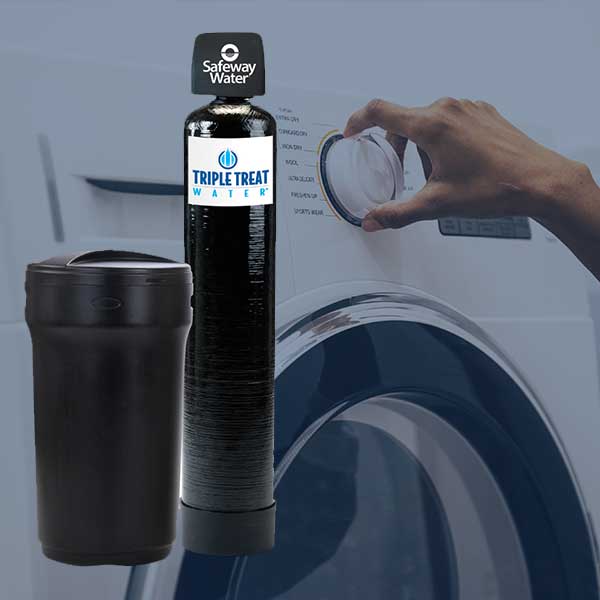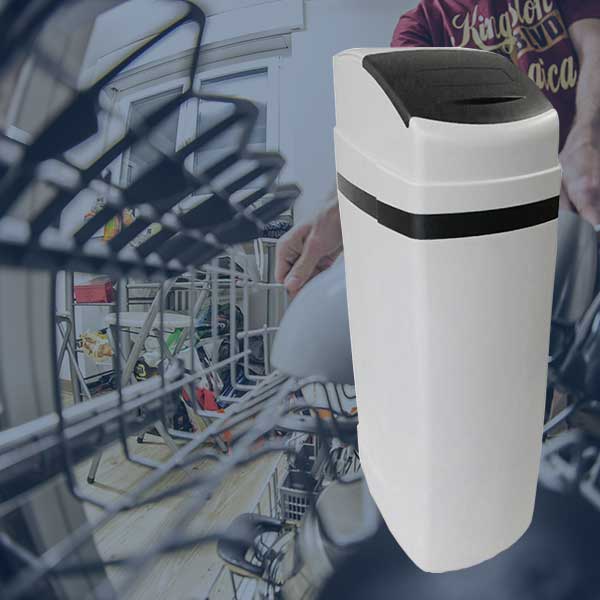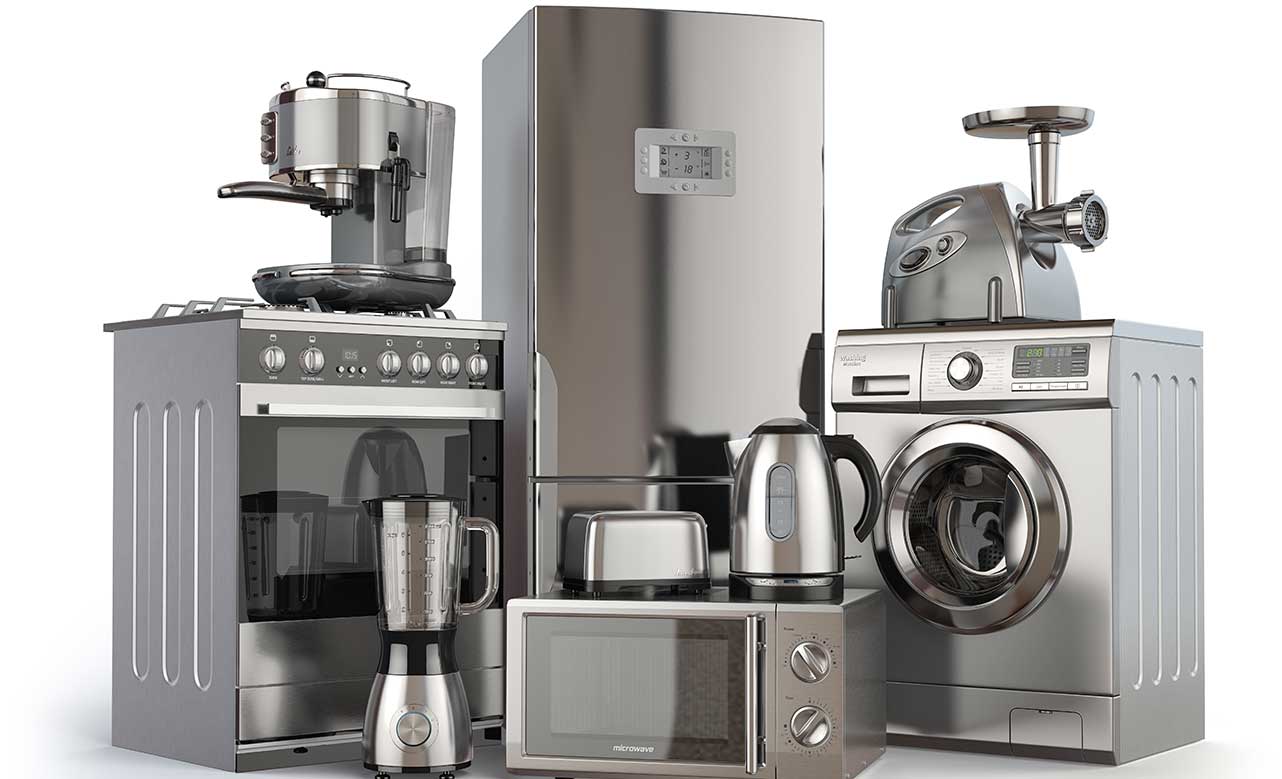
Protecting Kitchen Appliances & Plumbing With A Water Softener
Perhaps you’ve found yourself complaining about the quality of your last replaced kitchen appliance. Maybe you called the technician to repair your dishwasher or washing machine only to find out that you have to replace the equipment yet again. Is it that they just don’t produce quality appliances anymore, or is there a reason why yours do not last as they should?
Well, never fear because you can do something about the situation. And it begins with identifying the root cause of the problem, which in most cases, hard water. In this article, you’ll find out how the quality of water running through your apartment contributes to the frequent appliance repairs and replacement and the ways that you can protect your kitchen appliance from such problems.
Effects of hard water on kitchen plumbing and appliances
When the minerals in water are deposited in the piping system or kitchen appliances, the water supplied to your home can be the reason for pipes and kitchen appliances damage. Hard water usually contains a high amount of minerals like calcium and magnesium. These minerals are the reason for scale buildup in faucets and kitchen appliances like garbage disposals and dishwashers.
The hard water effects on appliances are numerous. Lime scales from hard water can clog or block the plumbing system as well as damage your water-consuming appliances. This damage happens over time. You’ll begin to notice that the efficiency of your appliances is reducing gradually and rapidly until they eventually break down. For the piping system, increasingly less water passes through the pipes the mineral deposit becomes too much that the pipe is blocked completely.
Water softeners helps to prevent rust and rust stains
Your kitchen faucet may be appealing when freshly installed. However, it loses its sparkle with the sight of rust stain. A chrome kitchen faucet stain, for example, may result from a deep scratch on the faucet surface or iron present in the water flowing out of the faucet, leaving behind iron deposits. Rusting also happens when wet metal utensils are left on the faucet plate, which is usually spread to other areas by water.
Apart from the spots and stains left by the mineral deposits from hard water, hard water also leads to the corrosion of faucets. Removing rust from kitchen faucets does more than leave the faucet clean. It preserves the shine of the faucet and prevents rusting in the future which could lead to permanent damage.
Water softeners helps to prevent rust or corrosion from faucets
Homeowners can learn how to remove rust to help maintain their faucets. One way to achieve this is to dissolve the hard water residue on the surface of the faucets by soaking the corroded area in concentrated white vinegar using a clean towel. After this, you can rinse and dry the area. Another option is to replace the faucet completely if you feel that your faucet is old and requires frequent enough repair that is no longer economical. Most homeowners go for a total kitchen upgrade, replacing the faucet and enhancing the kitchen space in the process.
But remember that whether you replace the faucet or clean the faucet rust, hard water problem will always reoccur if you do not tackle the issue from its source. This is where installing a water softener system is beneficial. This system filters out minerals and other debris causing the stain or corrosion from the water.
Water softeners helps to prevent the corrosion of the kitchen disposal
Garbage disposal is an essential piece of household equipment. If you are concerned about using the appliance for years without frequent repairs, then disposal care must be a priority. One common disposal problem is a bad odor, which is often due to the type of garbage thrown into it or improper cleaning after use.
That said, disposal blade rust can also be the reason why the garbage disposal stops performing optimally. For this, there are several simple remedies. For example, using a lemon juice solution or vinegar and baking powder. There are also other useful tips on how to keep the disposal clean like using ice cubes and salt to remove tough scums or debris from the garbage disposal.
Water softeners protects your dishwasher
Why does my dishwasher have a bad odor? How do you get rid of a bad smell in the dishwasher? These questions are common amongst homeowners.
Here’s the thing. The effects of hard water on kitchen appliances also extend to dishwashers as layers of residues tend to accumulate on the components over time. Common dishwasher problems caused by hard water include heating element damage, a malfunctioning thermostat, water stains and spots, and restricted water flow due to scum buildup caused by hard water. But besides the effect of hard water on the dishwasher, which usually shortens its lifespan and reduces its efficiency, other dishwasher problems include bad smelly water and unpleasant decaying coloration.
To solve problems like dishwasher smells and to remove hard water stains, as well as to prevent dishwasher damage, regular cleaning is paramount. Clean the dishwasher filter thoroughly with a stiff scrub brush, soap, and hot water. If after cleaning the dishwasher smells musky still, then you need to clean the entire machine, including gaskets, shelves, and the inside walls.
Other useful tips to protect your kitchen appliances
Avoid abrasive, highly concentrated chemical solutions that can weaken or damage the material when wiping down the surface of your kitchen appliances.
Remember to scrape off large chunks of food from your dishes into your trash to avoid clogging the dishwasher drainage system and kitchen plumbing system. Rinsing your dishes before placing them in the dishwasher can help prevent clogs and enable your dishwasher to clean more efficiently.
Do not use the kitchen faucet when the dishwasher is being filled with water to avoid diverting water as it fills. The reason for this is because food debris is more likely to be trapped in the gaps of the machine if enough water is not used to wash the dishes.
Check your water softener to ensure that the salt levels are acceptable.
Final thoughts on protecting your kitchen appliances
Protecting kitchen appliances and plumbing should be a top priority of yours as a homeowner. By addressing the core issues of hard water and rust, you can extend the longevity of the fixtures in your home.

Protecting Laundry Appliances & Plumbing With A Water Softener
Laundry appliances, like every other household appliance, are prone to damages if they are used regularly. Unsurprisingly, the quality of water flowing through these appliances can contribute to their damage over a long period. Therefore, it’s important to consciously maintain and protect laundry appliances and plumbing as well as the water flowing through them to keep them in good working condition. Keep reading to learn how to protect your washing machine from some common issues.
How to maintain your laundry machine
Water softeners eliminates frequent repairs
To avoid frequent repairs of your washing machine, first ensure that a proper installation job is done on the appliance. It is also important to follow certain operational and equipment instructions stipulated by the manufacturer as certain issues can be resolved with these Do-It-Yourself procedures. If the type of water flowing your home is hard water, then you should get a water treatment service for your home. Water softeners can help to avoid hard water damage on the inside of the washing machine. Hard water also clogs its lines over time.
Water softeners prevent Distorted coloring og your clothe
To avoid having distorted colors on clothes, use the right color setting on the machine. Hard water can also contribute to distorted color because the composition which makes water hard (calcium, magnesium) interferes with some soaps and detergent, which in turn creates color distortion. Therefore, a water softener can also help with this issue as well.
Water softeners helps to fight against bad Smell
To protect your washing machine against an unpleasant smell, take the following steps:
- Unclog and clean the filter according to the manufacturer’s instruction manual as it might not be draining properly
- Clean out the detergent drawer thoroughly with hot water and a damp cloth.
- Clean the rubber seals, which accumulate dirt, mildew and detergent residue over time
- Run an empty cycle on the hottest setting or a cold cycle with chlorine bleach
Water softeners helps to prevent Scum build-up
To remove scum from the washing machine effectively, use a cup of citric acid or mix it with a half cup of baking soda and choose a long wash cycle. Set the temperature to 90 degrees Celsius or 194 degrees Fahrenheit. You can also contact a plumbing professional to easily get the job done.
Water softeners helps to keep Mold build-up away
Typically, the design of front-loader washing machines makes them susceptible to mold contamination. Here is how to prevent mold in your washing machine.
The gasket has deep creases that withhold moisture and foster mold build-up. To get rid of this, make a mixture of warm water and laundry bleach at an equal ratio. Next, soak a clean rag in the mixture and clean the door gasket thoroughly. Then, pull open the seal creases and deeply wipe it to remove mold. If there is fungal growth, then you should stuff rags in to soak up the mixture in both the seal crease and directly on the mold for about 30 minutes.
Furthermore, a proactive way to prevent washing machine damage caused by mold is to wipe the door seal dry with a neat rag after every wash cycle.
Protecting clothes with a water softener
Water softeners prevent Dinginess of your clothe
To protect your clothes from fading and to prevent dinginess in clothes, follow these steps:
- Always separate dark-colored clothes from lights and pastels. Doing this will prevent any dye released during the wash from discoloring other clothes. It’s also smart to separate delicate fabrics from heavy fabrics.
- Turn clothes inside out and zip up zippers to reduce friction that might lead to color loss.
- Wash colored fabrics in cold water and white fabrics in warm water. This is because warm water opens up cloth fiber, but cold water keeps it closed. The cold water will help prevent dyes from spreading between fabrics while in the wash.
- Add a cup of vinegar to the rinse cycle or half a cup of salt to the wash cycle to help aid in color retention.
Water softeners prevent yellowing of your clothe
This problem affects mostly white clothes. Here’s how you can prevent yellowing in white cloths:
- Wash the white clothes as often as possible. You’ll begin to notice stains begin to appear after one or two wears.
- Never wash white clothes with clothes of different colors.
- Use a good laundry detergent containing bleach or add a good bleach to your wash cycle for white.
- Be meticulous when measuring your bleach or cleaner because either overuse and underuse can also cause yellowing.
Water softeners prevent Soil build-up
Tackling body soil build-up in cloths requires adequate and sufficient detergent for wash cycles. Increasing the wash temperature always helps to combat soil build-up on clothes. Using detergent products with enzymes can also tackle yellowing soils on clothes.
Water softeners prevent Stiff and touch fabric
This problem is usually associated with hard water because some powder detergent leaves residue when they combine with the minerals in hard water. To prevent stiff fabric, getting a water treatment service or a water softener is a lasting solution. However, other measures include using liquid detergent with hard water. For clothes already suffering from this issue, add a cup of white vinegar to a gallon of warm water in a plastic container then soak and rinse.
Water softeners prevent Weakening of fibers
Sometimes, it is difficult to tell which cloth fabric will get easily weaken. Here are some tips on how to prevent the weakening of fibers. For fabrics with a high tendency to weaken, it is advisable to use the washer’s gentle cycle when washing. Another way to avoid this issue is to turn the clothes inside out before washing, so excessive abrasion will not ruin the surface.
Water softeners prevent white or gray streaks on your clothe
The sight of white or gray streaks is quite annoying after washing your clothes and expecting it to be clean. To prevent white streaks from sabotaging your wash, never overload your washing machine. This is because streaking is commonly caused by improperly dissolved washing powder, and it’s very difficult for an overloaded wash machine to properly dissolve powder detergent.
Water softeners helps to prevent Bad odor of your clothe
A bad smell on clothes can make you and those around you uncomfortable. Here are some ways to prevent bad odor on clothes and how to remove bad odors.
- Ensure your washing machine is regularly cleaned and in good working condition
- Ensure the water flowing in your home is not contaminated as it can also cause your clothes to have an unpleasant odor
If you’ve noticed your clothes have an unpleasant odor, here’s is how to remove the bad smell from your clothes.
- Add a cup of baking soda to your detergent when washing. Baking soda is a deodorizer, so it helps expel bad smell when washing. For powder detergent, add baking soda together with it but the liquid detergent, add baking soda after filling the basin with water.
- Another effective method of removing bad odor from clothes is by applying oxygenated bleach to your wash cycle. Adding a cup of white vinegar to rinse cycle also helps to remove odor.
Final thoughts on protecting your laundry with a water softener
Your laundry machine is one item in your house you don’t want to be compromised. After all, your clothes should go in dirty and come out clean. If they’re coming out dirty, you know you have a problem on your hands! Remember to pay particular attention to the installation direction, ensure that clean water is being used, and thoroughly maintain your washer for the best results. For any issues you can’t fix, Safeway Water LLC has your back!
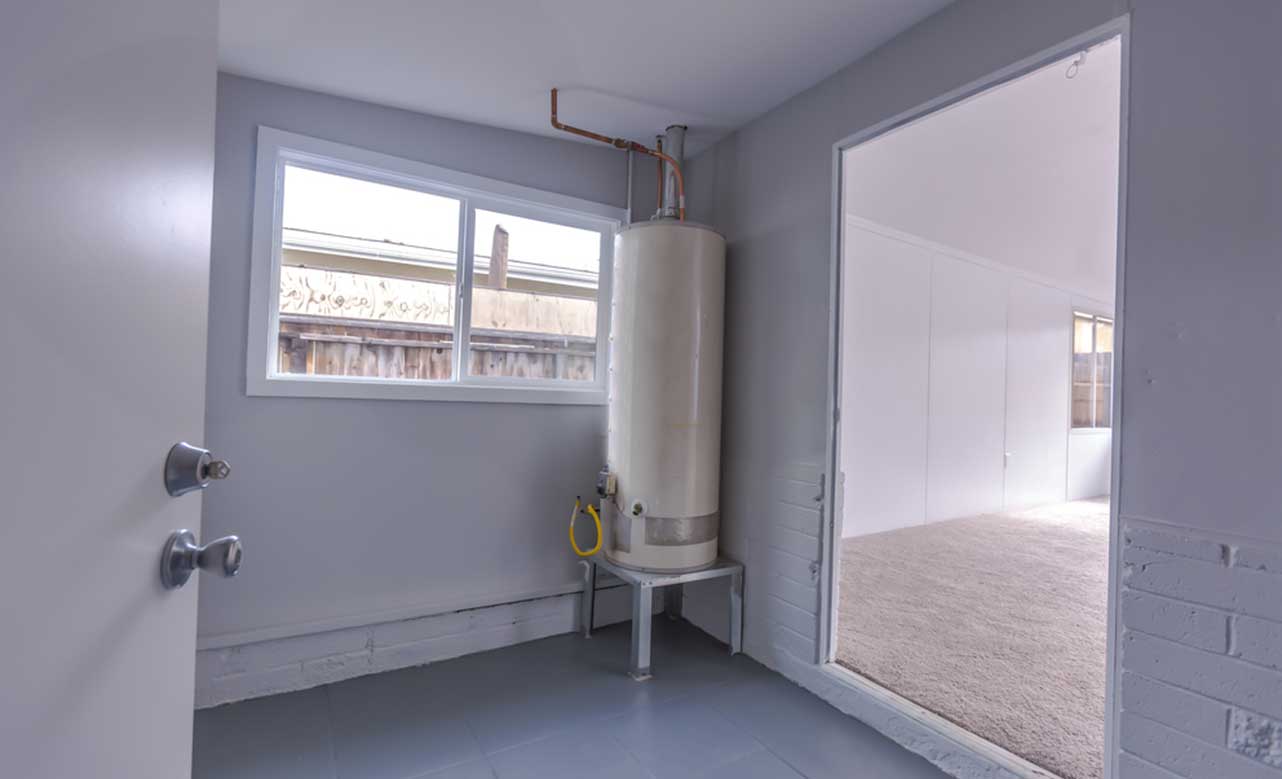
Protecting Water Heater & Plumbing With A Water Softener
Most people don’t really pay much attention to the water heater in the bathroom until there’s a problem with it. Most automatically consider the water heater to be in good condition as long as it delivers hot water when they need it. However, just like all other systems in the home, routine water heater maintenance is necessary for optimum functionality.
While some issues with the water heater can be fixed easily without a need for a professional, you need to understand when to repair your water heater yourself and when to get a professional water heater repair service. But first, what are the common problems with a water heater, and how can you protect your water heater and plumbing from these problems?
Common water heater problems and solutions
Not enough hot water
The problem of a water tank producing too little hot water is always a cause for concern once encountered. Although, this problem can often be resolved by increasing the temperature on the water heater thermostat. That said, be careful not to turn up the temperature too high as it could be another impending scalding hazard.
Water softeners help in keeping more hot water in your water heater
Ever noticed that hot water doesn’t come out when you turn on your hot water faucet? The most common cause of this issue is a faulty thermocouple, heating element or pilot control valve. And usually, this can be resolved by replacing the heating element or thermocouple. We suggest getting a pro to handle the water heater repairs in this case.
Water softeners helps in fighting against smelly water in your water heater
When water is infested by bacteria, it smells awful (like a rotten egg type of smell). The solution to this is to simply flush out the water tank and replace it with a mixture of hydrogen peroxide. Then allow the solution to sit for a couple of hours before flushing again with new clean water. If the smell persists, or if both the hot and cold water still have a foul odor, then perhaps the water heater may not be the source. You may need to hire a plumbing professional to resolve the problem.
Noisy water tank
If you observe a noise from the water heater tank, it could be that sediments have settled at the bottom of the tank, or the heating element is literally burning the sediment. For settled sediments, you can easily drain the tank regularly. And when it involves the heating element, have a professional replace it.
Leaking heater tank
Once you notice that the tank of your water heater has started leaking, you just have to replace it with a new one. Simply contact a service expert to replace your water heater and save you the stress and discomfort of the leaks.
Colored water
If your water is coming out colored, perhaps it is a sign of corrosion or rust from your water heater. You can opt to either replace the water heater entirely or replace the anode rod in the appliance to prevent rust from gathering in the tank.
Water softeners helps prevent the water from taking too long to reheat
A water heater that takes too long to get to the temperature you want when you put on your faucet or shower is probably the sign of a failing water heater or buildup of scales and sediments in the water heater tank. It could also be the result of the distance between the water outlet and the water heater. The most effective solution to this problem is to install a hot water recycling system to move hot water to the desired outlet faster. This also reduces the amount of water wasted while waiting for it to reach the desired temperature.
Before you attempt to protect your water heater from the above issues and more, it’s best to consider the type of water heater. Is it a tank storage heater or a tankless heater? You also need to know if the freezing temperature of your location will affect the water heater.
A tankless water heater doesn’t cope well with very low temperatures. However, provided it is always connected to its energy source, no special anti-freezing protection is needed as some energy will go to preventing freezing during cold weather (even when the water heater is not in use).
On the other hand, more protection is needed for a tank water heater, especially if it has constant exposure to the cold. It is advisable to get a water heater tank cover and drain the storage tank before the winter season to avoid the risk of freezing.
How to protect your water heater and plumbing with a water softener
Insulate your pipes
When the pipes connected to your water heater are exposed, the appliance does more work to heat up water, especially during the winter season. This translates to high energy bills. To prevent frozen water heater pipes, cut down on your energy cost, and make your water hot on demand, insulate your pipes.
Always check the temperature of the water
Although lowering your water heater temperature saves you some cash on energy bills, you can increase the water heater temperature if you are having challenges getting hot water. However, always maintain a temperature range of 115 – 120 degrees Fahrenheit. A temperature above 125 degrees Fahrenheit is an impending hazard.
Flush the water heater system
If you want your water heater to last longer for you and work efficiently throughout its useful life, you must flush your water heater at least once every year. The reason for this is because of sediment buildup, which may lead to rust and clogging of the plumbing system and drain valve.
Always test the pressure relief valve
The pressure relief valve is a safety mechanism for different water heater types – either gas or electric water heater. To check, lift the valve halfway; if it returns to its default position automatically, then it’s working properly. Otherwise, get the help of a professional to ensure that it is working perfectly.
Water heaters are one of the common household appliances in the US, which is why it is important that you are aware of these common water heater problems. Paying close attention to your water heater is also helps you avoid unnecessary frequent repairs irrespective of the changing seasons. If you have experienced any other water heater problem not mentioned here, please leave us a comment below.
Final thoughts on using a water softener to protect your water heater
Everyone loves a hot shower, but it wouldn’t be possible without your hot water heater. Protecting this appliance through proper water heater maintenance and repair will help it to last longer despite issues that arise (sulfur water, leaks, corrosion, rust or more!). For what you can’t do yourself at home, call on Safeway Water LLC for help!

Protecting Bathroom Fixtures & Plumbing With A Water Softener
Although the bathroom occupies a small space in your house, it accommodates numerous fittings and fixtures. A typical bathroom consists of a shower system (including a tub and toilet seat), faucets, pipework, and fittings. These bathroom components, or fixtures, are an essential part of its setup. Therefore, ensuring that they look squeaky clean at all times and remain in perfect working condition is imperative.
Consider a bathroom faucet for example. Apart from some discomfort or annoyance that you may feel because of the water drop sounds from a leaky faucet, certain bathroom stains and discoloration also cause some form of irritation. Because bathroom wares age over time and they are always in contact with water, there is a tendency for them to develop rust. This may occur on the bathroom fixture or in the internal walls of the piping. There is also the chance for bacteria and limescale build-up, especially when it lacks proper maintenance care.
So, before it gets to the point where the quality of water is affected or when something minor results in major replacements, how can you protect your bathroom fixtures and plumbing?
Common bathroom problems & solutions
Bathroom and toilet rust stains are quite common, especially in areas where hard water is supplied. This hard water contains certain impurities like calcium and magnesium. When accumulated, these elements combine with sulfates, bicarbonates, and chlorides to form insoluble mineral salts. The salts ultimately cause corrosion in the form of rust and eventually become visible on tubs, sinks, faucets, and other bathroom surfaces.
Faucet
Most metal bathroom faucets, especially those made of brass and copper, are prone to corrosion when exposed to water, oxygen, and carbon dioxide. This corrosion produces bathroom rust stains (a reddish-brown scale) that are often visible on both the inside and outside surface of the bathroom faucet. When this occurs, removing faucet rust stains in the bathroom becomes inevitable.
Hard water also harms pipes and bathroom installations. Debris and limescale pile up may block the water pipe and leave ugly looking stains on bathroom faucets. These deposits are not just unpleasant. They can also clog and damage the seal the bathroom fixture, which could lead to clogged bathroom pipes and leaks that can cause even more damage.
Apart from corrosion, other causes of leaky bathroom faucets, including mineral deposits on certain installation parts and defective washers or gaskets, can prompt bathroom fixtures to get damaged too often. Since the bathroom faucet is exposed to running water and moisture constantly, the situation should not go unattended once the issue has been noticed. This will help to prevent permanent damage or frequent repairs of leaky faucet.
Toilet
Unclean bathroom diseases are one of the early signs that you have a bathroom that is infested by bacteria. Not just the obvious spots of your bathroom space like the floor and toilet seat but also the tap handles, plughole, sink, and bathtub. According to research, the sink has the highest number of Colony-Forming Units (about 50,000 CFUs). E.coli, Streptococcus, and Salmonella are the most common types of bathroom bacteria. They are primarily caused by neglecting proper bathroom hygiene. So, just as devotion to personal hygiene is paramount, keeping the bathroom clean and spotless is something that must be done. But the truth is, even a clean surface can still harbor germs, which is why using a good disinfectant is useful.
Rust stains
While it might sound a bit stressful, constant bathroom cleaning is an effective preventive approach to protecting your bathroom and toilet from soap and rust stains, and it doesn’t take much energy. Simply wipe the surface in your bathrooms with a clean towel regularly or after each time you use the bathroom. By doing this, you protect the bathroom facility from rust stains. It can also help shield against prolonged contact with hard water, which would have reacted with the surface.
Tub
By now, you must have noticed that rust and metals go hand-in-hand. For example, leaving any metallic item on a wet tub will form rust and stain the surface. So, if you happen to be in the habit of leaving metal cans on your tub, perhaps you should consider breaking the habit or substituting the item with plastic can products. Simply put, avoid keeping metal items on moist surfaces.
Since hard water contains mineral contents that can react with your faucet, toilet, and tub, getting a home water softener installed is another great way to protect your bathroom fixtures from rust stains. Try installing a water softener or iron filter to solve this issue. The role of the softener is to filter the hard water and rid it of those mineral deposits before it gets to the filter or leaves the tap. Additionally, installing a water softener makes all of your plumbing appliances last longer.
Useful tips on how to protect bathroom fixtures
Proper bathroom ventilation
Sometimes, the reason why toilet and bathroom surfaces are plagued with stains is that enough air does not penetrate the bathroom. Ventilation helps to keep your bathroom dry and moisture-free, which will further reduce the possibility of rusty water stains forming on the surface of your bathtub, sink, and shower.
Water softeners prevent dirty water spots
If you look at it critically, water will always be present on bathroom fixtures. So if you rely on chrome and related metals for your bathroom fixtures, one problem you may often encounter is decaying coloration. In this case, perhaps an upgrade will save you a lot of time and money in the long run because cleaning doesn’t restore its shine. By switching to stainless steel bathroom fixtures, you won’t have to worry much about rust stains forming overtime. While stainless steel might seem expensive at first, the value you get and the future stress it saves you from is worth it.
Water softeners prevent ugly water stains
White minerals, soap scum or scales may begin to build up on the surfaces, which leaves behind stains and spots. To protect them, preheat the surface with white vinegar and wipe with a damp sponge (or toilet brush for the toilet bowl). Then rinse with clean water afterward. The vinegar helps to breakdown the minerals, kills the bacteria, deodorizes the bathroom space, and cleans the surface.
Final thoughts on using a water softener to protect your bathroom
Protecting bathroom fixtures and plumbing can save you from needing to upgrade due to ugly stains or malfunctions like a leaky faucet due to hard water. When looking for the root of the problem, water softeners and iron filters are two products that are essential to address the hard water issue. Visit Safeway Water LLC to learn more.
Great Job! You Have Made It To The End Of This Article About Water Softeners.
As you can see, there is a lot of issues around the home that is caused by hard water. We have provided you with all the damages that a water softener prevents. Call us at 855-999-7233 and start protecting your home and love ones.

